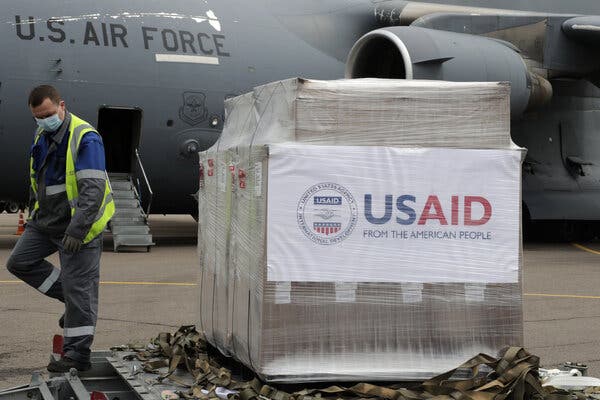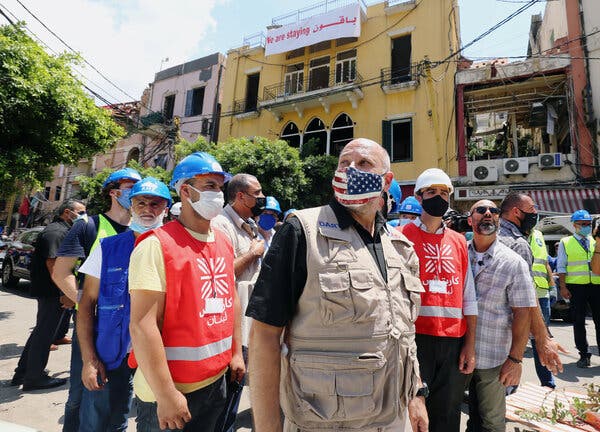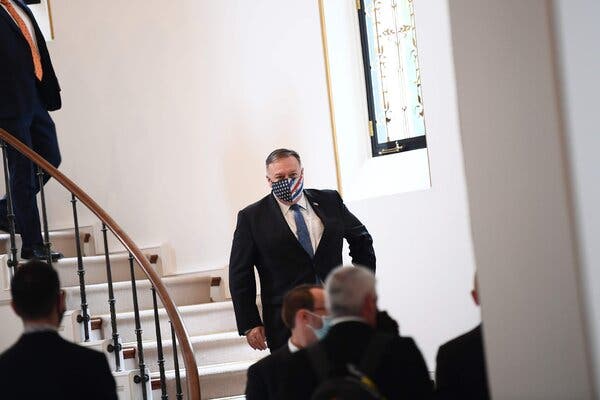Advertisement
Aggressive oversight of the aid agency by political appointees at the White House and the State Department has delayed humanitarian aid when the world needs it most.

WASHINGTON — The coronavirus was spreading around the world, and officials at the United States Agency for International Development were anxious to rush humanitarian aid to nations in need. But first, they had to settle a debate over American branding and whether it should be displayed on assistance headed to conflict zones.
Political appointees from the White House and the State Department wanted the aid agency’s logo affixed to all assistance packages to show the world how much the United States was sending abroad, even as it grappled with its own outbreak.
Career employees at U.S.A.I.D. argued that the logo and other American symbols could endanger people who delivered or received the aid in countries that are hostile to the United States and where branding exceptions are usually granted.
At the end of the debate this spring, relief workers were allowed to distribute aid without the branding in a handful of countries in the Middle East and North Africa. But the discussion, as described by a half-dozen current and former officials at the aid agency and relief workers who were briefed on it, delayed assistance for several weeks to some of the world’s most vulnerable communities as the pandemic began to peak.
It was a cautionary example of the political intervention that has roiled an agency that prides itself as leading the humanitarian response to disasters, conflict and other emergencies around the world.
“As far back as I go, working on these programs, U.S.A.I.D. has really been an extraordinary, respected leader in global health and humanitarian responses,” said Representative Nita M. Lowey, Democrat of New York and the chairwoman of the House Appropriations Committee. “To distort that mission is an insult, and it’s really outrageous to me.”
In an interview, Ms. Lowey said she had never seen the aid agency as vulnerable to partisan politics as it was during the Trump administration. She cited the agency’s accusation in May that the United Nations was promoting abortion in its coronavirus response fund as “an example of the Trump administration politicizing a global pandemic to appeal to antichoice voters here in the United States.”
The aid agency’s acting administrator, John Barsa, was selected for the job on March 17, hours before the coronavirus was confirmed in all 50 states and the District of Columbia. Mr. Barsa, who declined to be interviewed for this article, took extra precautions to prepare for the hurricane season and was quick to assist victims of the deadly explosions in Beirut, Lebanon, last month that have left at least 300,000 people homeless.
But as President Trump campaigns for re-election and the coronavirus has claimed more than 193,000 lives nationwide, the aid agency has been micromanaged by the White House and the State Department. That has prompted critics to say the intervention has slowed pandemic relief efforts to some places, weaponized aid in other areas to chastise Trump administration adversaries and disengaged the United States from the World Health Organization’s coronavirus response.

Pooja Jhunjhunwala, the aid agency’s acting spokeswoman, said Mr. Barsa was “uniquely qualified to lead U.S.A.I.D. during this period,” given his past work at the Department of Homeland Security and NASA, dating to the George W. Bush administration.



